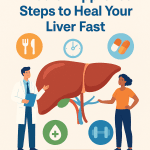This article is for informational purposes only and should not be considered medical advice. Always consult a healthcare provider for personal health concerns.
The Crucial Connection Between Sleep and Mental Health
Have you ever noticed how a good night’s sleep can transform your mood? Sleep doesn’t just refresh our bodies; it plays a vital role in maintaining our mental health. Research consistently shows that quality sleep is essential for emotional regulation, cognitive function, and overall mental well-being. But what exactly happens in our brains during sleep that makes it so crucial for our mental health?
Why Sleep Matters for Your Mind
Sleep is a restorative process that allows our brains to recover and rejuvenate. During sleep, our brains engage in critical functions such as:
- Memory consolidation: Sleep helps solidify memories and learning, making it easier to retain information. Studies indicate that during deep sleep, the brain replays experiences, enhancing memory retention (Diekelmann & Born, 2010).
- Emotional processing: Quality sleep aids in processing emotions, allowing us to respond to stressors more effectively. Research shows that sleep helps modulate emotional responses, enabling better coping strategies (Gordon et al., 2017).
- Stress regulation: Adequate sleep can lower levels of stress hormones, reducing anxiety and promoting a sense of calm. Cortisol, often referred to as the stress hormone, is regulated during sleep, and insufficient sleep can lead to elevated cortisol levels (Hirshkowitz et al., 2015).
Pathophysiology of Sleep and Mental Health
The relationship between sleep and mental health is complex, involving neurobiological mechanisms. During sleep, particularly in the REM (Rapid Eye Movement) phase, the brain undergoes significant changes. Neurotransmitters like serotonin and dopamine, which are crucial for mood regulation, are actively involved in sleep cycles. Disruptions in these neurotransmitters due to poor sleep can lead to mood disorders, highlighting the pathophysiological link between sleep disturbances and mental health issues.
The Impact of Sleep Deprivation
When we don’t get enough sleep, the consequences can be profound. Studies show that sleep deprivation is linked to various mental health issues, including:
- Anxiety and depression: Lack of sleep can exacerbate symptoms of anxiety and depression, creating a vicious cycle. The relationship is bidirectional; not only can poor sleep lead to mental health issues, but mental health issues can also lead to poor sleep (Gaultney, 2016).
- Cognitive impairments: Sleep deprivation can impair attention, decision-making, and problem-solving skills. For instance, a study found that sleep-deprived individuals performed worse on tasks requiring complex thinking (Killgore, 2010).
- Increased irritability: A tired mind often leads to increased frustration and irritability, affecting relationships and daily interactions. This emotional dysregulation can strain personal and professional relationships (Sinha et al., 2019).
How Much Sleep Do You Really Need?
The amount of sleep required varies by age and individual needs. The National Sleep Foundation recommends:
- Adults (18-64 years): 7-9 hours
- Older adults (65+ years): 7-8 hours
- Teenagers (14-17 years): 8-10 hours
It’s important to listen to your body. If you wake up feeling refreshed and alert, you’re likely getting the right amount of sleep for you. However, individual variations exist, and some may require more or less sleep based on lifestyle and health conditions.
Improving Sleep Quality
Here are some practical steps to enhance your sleep quality:
- Establish a sleep routine: Go to bed and wake up at the same time every day, even on weekends. Consistency reinforces your body’s natural sleep-wake cycle.
- Create a sleep-friendly environment: Keep your bedroom dark, cool, and quiet. Consider using earplugs or an eye mask if necessary. A comfortable mattress and pillows can also significantly improve sleep quality.
- Limit screen time: Reduce exposure to screens at least an hour before bedtime to minimize blue light disruption. Blue light can interfere with melatonin production, making it harder to fall asleep (Hale & Guan, 2015).
- Watch your diet: Avoid large meals, caffeine, and alcohol close to bedtime, as they can interfere with sleep. Instead, consider light snacks that promote sleep, like a banana or a small bowl of oatmeal.
- Incorporate relaxation techniques: Practices such as deep breathing, meditation, or gentle yoga can help ease the transition into sleep. These techniques reduce stress and prepare the mind for rest.
Myth vs. Fact
Myth:
“I can catch up on sleep during the weekends.”
Fact:
While sleeping in on weekends can help alleviate some sleep debt, it doesn’t fully compensate for the cognitive and emotional deficits caused by chronic sleep deprivation. Regular sleep patterns are crucial for optimal functioning.
Myth:
“Sleep is a waste of time.”
Fact:
Sleep is an active state that is crucial for physical health, mental clarity, and emotional stability. It is during sleep that our bodies repair and rejuvenate.
Real-Life Impact: A Patient’s Journey
Consider Sarah, a 32-year-old marketing executive. For years, she struggled with anxiety and irritability, often attributing it to work stress. After consulting a mental health professional, she discovered that her sleep hygiene was poor. With guidance, she established a bedtime routine and prioritized sleep. Within weeks, Sarah noticed a significant decrease in her anxiety levels and improved mood. Today, she emphasizes sleep as a cornerstone of her mental health strategy, often sharing her experience with colleagues to raise awareness about the importance of sleep.
Frequently Asked Questions
1. How does lack of sleep affect mental health?
Lack of sleep can lead to increased anxiety, depression, and irritability, impairing emotional regulation and cognitive function. Chronic sleep deprivation can also heighten the risk of developing mental health disorders.
2. Can improving sleep quality help with anxiety?
Yes, studies suggest that better sleep quality can significantly reduce symptoms of anxiety and improve overall emotional well-being. Improved sleep hygiene can lead to better stress management and emotional resilience.
3. What are some natural remedies for better sleep?
Natural remedies include practicing relaxation techniques, maintaining a consistent sleep schedule, and using herbal supplements like valerian root or melatonin. However, it’s advisable to consult a healthcare provider before starting any supplements.
4. Is it possible to recover from sleep deprivation?
While you can recover from occasional sleep deprivation, chronic sleep loss may lead to long-term mental health issues. A consistent sleep routine is crucial for recovery, and it may take time to fully restore cognitive function and emotional balance.
5. How does sleep affect memory?
Sleep plays a vital role in memory consolidation, helping to transfer information from short-term to long-term memory. The brain processes and organizes information during sleep, which is essential for learning.
6. What should I do if I can’t fall asleep?
If you struggle to fall asleep, try relaxation techniques, avoid screens, and ensure your sleep environment is conducive to rest. If sleep issues persist, it may be beneficial to consult a healthcare provider for further evaluation.
7. Can napping help improve mental health?
Napping can be beneficial in moderation, especially if you are sleep-deprived. Short naps of 20-30 minutes can enhance alertness and improve mood without interfering with nighttime sleep.
8. Are there specific sleep disorders that affect mental health?
Yes, conditions like insomnia, sleep apnea, and restless leg syndrome can significantly impact mental health. These disorders can lead to chronic sleep deprivation, exacerbating anxiety and depression.
Key Takeaways
- Quality sleep is essential for emotional regulation and cognitive function.
- Lack of sleep can exacerbate mental health issues like anxiety and depression.
- Establishing a consistent sleep routine can significantly improve sleep quality.
- Creating a sleep-friendly environment is crucial for restful nights.
- Natural remedies and relaxation techniques can aid in improving sleep.
- Understanding the pathophysiology of sleep can help you appreciate its importance for mental health.
Key Takeaways
- Quality sleep is essential for emotional regulation and cognitive function.
- Lack of sleep can exacerbate mental health issues like anxiety and depression.
- Establishing a consistent sleep routine can significantly improve sleep quality.
- Creating a sleep-friendly environment is crucial for restful nights.
- Natural remedies and relaxation techniques can aid in improving sleep.
- Understanding the pathophysiology of sleep can help you appreciate its importance for mental health.
References
- Diekelmann, S., & Born, J. (2010). The memory function of sleep. Nature Reviews Neuroscience, 11(2), 114-126.
- Gordon, A. M., et al. (2017). Sleep and emotional regulation: A focused review. Current Opinion in Psychology, 19, 1-5.
- Hale, L., & Guan, L. (2015). Screen time and sleep among school-aged children and adolescents: A systematic literature review. Sleep Medicine Reviews, 19(1), 32-41.
- Hirshkowitz, M., et al. (2015). National Sleep Foundation's sleep time duration recommendations: Methodology and results summary. Sleep Health, 1(1), 40-43.
- Killgore, W. D. S. (2010). Effects of sleep deprivation on cognition. Progress in Brain Research, 185, 105-129.
- Sinha, R., et al. (2019). Sleep, stress, and emotional regulation: A review of the literature. Sleep Medicine Reviews, 43, 1-10.
- Gaultney, J. F. (2016). The prevalence of sleep disorders in college students: Implications for the academic performance and mental health of students. Journal of American College Health, 64(1), 1-10.








Post a comment